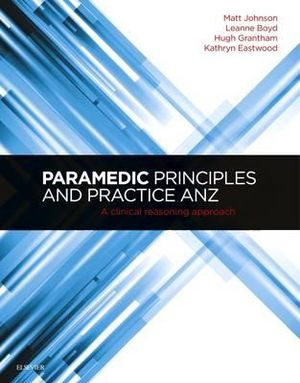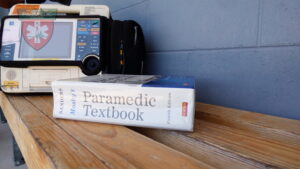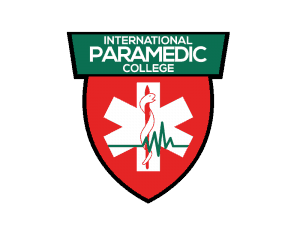
Top Ten Paramedic Habits for Excellence in Emergency Care
What qualities make a good paramedic?
In the fast-paced and high-pressure world of emergency medicine, paramedics play a vital role in providing life-saving care. To excel in this demanding profession, it’s essential to develop good habits that contribute to efficient, effective, and compassionate care delivery. In this article, we will explore the top ten paramedic habits that can help you become an exceptional paramedic and make a positive impact on the lives of patients. Paramedic education plays a formative role in developing good practice
Prioritising Safety
As a paramedic, safety should be your top priority. Adhering to strict safety protocols and guidelines ensures the well-being of both patients and yourself. This includes wearing personal protective equipment, following infection control measures, and practising safe driving techniques.
Effective Communication
Clear and concise communication is critical in emergencies. Develop strong verbal and non-verbal communication skills to relay information accurately and efficiently to team members, patients, and healthcare professionals. Effective communication fosters collaboration, reduces errors, and ensures the best possible patient outcomes.
Maintaining Calm Under Pressure
Emergencies can be highly stressful, and remaining calm is essential for making sound decisions and providing optimal care. Develop techniques such as deep breathing, mindfulness, and positive self-talk to manage stress and stay focused during intense situations.
Continuous Education and Training
Paramedicine is a constantly evolving field, and staying updated with the latest medical advancements is crucial. Engage in continuous education and training to enhance your knowledge, sharpen your skills, and stay abreast of the latest treatment protocols and technologies.
Critical Thinking Skills
Paramedics often encounter complex medical situations that require quick-thinking and effective problem-solving. Develop strong critical thinking skills to assess and analyze patient conditions, anticipate potential complications, and make well-informed decisions in high-pressure scenarios.
Empathy and Compassion
As a paramedic, you will interact with individuals facing traumatic or life-threatening situations. Cultivate empathy and compassion to provide emotional support and reassurance to patients and their families. Demonstrating kindness and understanding can greatly contribute to patient comfort and overall well-being.
Adaptability and Flexibility
Emergency medicine is unpredictable, and situations can change rapidly. Being adaptable and flexible is essential for managing unforeseen challenges and adjusting care plans accordingly. Embrace a mindset of continuous learning and adaptability to provide the best care in dynamic environments.
Attention to Detail
Paramedics must pay meticulous attention to detail to accurately assess patient conditions, administer medications, and document medical information. Cultivate a habit of thoroughness and precision to ensure accuracy in all aspects of your work, minimising the risk of errors and improving patient safety.
Teamwork and Collaboration
Paramedics rarely work alone, and effective teamwork is crucial for seamless care delivery. Foster a collaborative approach by actively communicating with your team members, respecting their expertise, and working together to achieve common goals. Effective teamwork enhances efficiency and patient outcomes.
Self-Care and Resilience
Paramedic work can be physically and emotionally demanding. It’s essential to prioritise self-care and build resilience to prevent burnout and maintain a healthy work-life balance. Engage in activities that promote physical and mental well-being, seek support when needed, and practice self-reflection to ensure your own long-term health and sustainability.
Developing and practising these top ten paramedic habits can significantly contribute to your success as an exceptional paramedic. By prioritising safety, honing communication skills, staying calm under pressure, and fostering a mindset of continuous learning, you can provide outstanding care to patients in emergencies while also taking care of yourself. Cultivating these habits will not only enhance your professional abilities, but also contribute to your personal growth as a paramedic.
Many medics from the military, army navy, air force and other sectors with skills and knowledge can apply for RPL of their current skills and gain a Diploma of Emergency Care
Paramedics in Australia hold various job titles and classifications, reflecting their levels of training, expertise, and responsibilities. From student paramedics embarking on their educational journey to ambulance officers providing essential emergency care, paramedics play a vital role in the healthcare system. Advanced Care Paramedics and Intensive Care Paramedics bring advanced skills and critical care expertise to deliver life-saving interventions.
 Paramedical EMT Medic & First Responder courses
Paramedical EMT Medic & First Responder courses
Most of the units can be delivered 100% online. Short practical time frames in all metropolitan cities and some regional areas of Australia. Live webinars with real paramedics where you can Q&A what you need to learn. The practical components can be done via video or online meetings at set times. We can also deliver our scope of courses by face-to-face methods. We have a number of flexible mixed mode delivery options and pathways training. Our unique learning systems use industry reference textbooks. Australian textbooks like the Principals of paramedic practice and paramedic skills manual textbooks are used to support and focus your learning via industry standards. Our curriculum is unique, written by us, not some generic health content, it is focused on teaching you relevant and real paramedic skills.
We have a unique paramedical pathway educational program where you can journey through our medic and paramedical education units on your way to becoming a paramedic, so it takes no extra time but gives you the advantage of low upfront costs, a taste of what the career might be like and gets you qualifications such as the
Certificate II in Medical Service First Response
Certificate III in Basic Health Care
Certificate lll in Non-Emergency Patient Transport (NEPT)
Certificate IV in Health Care (Medic Ambulance EMT First Responder)
Diploma of Emergency Health Care (Paramedical pre-hospital care training)
You can work your way through the qualifications in our unique pathways approach which costs you no more money or time, saves you upfront costs and gives you qualifications along the way to the Diploma of Emergency Health Care and use that to gain entry to employment or for advanced standing or RPL for University study to the Bachelor’s Degree in Paramedic Practice. Each University in Australia has programs to recognise prior learning and studies.
RPL - RCC - Credit Transfer
Fixed Pricing for RPL RCC - Certificate Qualifications
Emergency Medic - Paramedical -
EMT - First Responder
We are the pre-hospital care experts on RPL RCC in Australia
- Cert II RPL Fixed Pricing
- Cert III RPL Fixed Pricing
- Cert III NEPT RPL Fixed Pricing
- Cert IV RPL Fixed Pricing
- Diploma RPL Fixed Pricing
HLT21020 Certificate II in Medical Service First Response
$650 Fixed Price RPL / RCC
We will book a zoom session with you to discuss your application and let you know if it is possible to get RPL with your current evidence and what evidence would be required in your case, prior to payment of any fees
If your evidence is insufficient for a grant of RPL you may complete gap training at a discounted price
You will be required to have a current first aid certificate (HLTAID011)
HLT31220 – Certificate III in Basic Health Care
$750 Fixed Price RPL / RCC
We will book a zoom session with you to discuss your application and let you know if it is possible to get RPL with your current evidence and what evidence would be required in your case, prior to payment of any fees
If your evidence is insufficient for a grant of RPL you may complete gap training at a discounted price
You will be required to have a current first aid certificate (HLTAID011)
HLT31120 Certificate III in Non-Emergency Patient Transport
$850 Fixed Price RPL / RCC
We will book a zoom session with you to discuss your application and let you know if it is possible to get RPL with your current evidence and what evidence would be required in your case, prior to payment of any fees
If your evidence is insufficient for a grant of RPL you may complete gap training at a discounted price
You will be required to have a current first aid certificate (HLTAID011)
HLT41120 Certificate IV in Health Care (First responder EMT Medic)
Ambulance EMT Medic Course
$1250 Fixed Price RPL / RCC
We will book a zoom session with you to discuss your application and let you know if it is possible to get RPL with your current evidence and what evidence would be required in your case, prior to payment of any fees
If your evidence is insufficient for a grant of RPL you may complete gap training at a discounted price
HLT51020 Diploma of Emergency Health Care (Paramedical Training)
$1995 Fixed Price RPL / RCC
We will book a zoom session with you to discuss your application and let you know if it is possible to get RPL with your current evidence and what evidence would be required in your case, prior to payment of any fees
If your evidence is insufficient for a grant of RPL you may complete gap training at a discounted price


